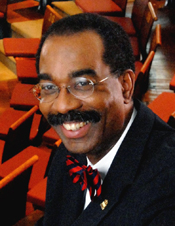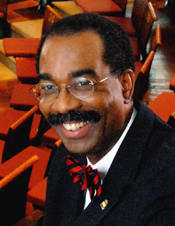 What’s on my mind this month is the upcoming “Festival of Science,” on November 22, 2013, which will give us an opportunity to highlight our outstanding research programs. This year, we will feature the research in three of our major academic units: the Institute for Genome Sciences, the Department of Pharmacology, and the Department of Surgery. World-renowned external scientific experts will provide constructive feedback on the direction of our pursuits.
What’s on my mind this month is the upcoming “Festival of Science,” on November 22, 2013, which will give us an opportunity to highlight our outstanding research programs. This year, we will feature the research in three of our major academic units: the Institute for Genome Sciences, the Department of Pharmacology, and the Department of Surgery. World-renowned external scientific experts will provide constructive feedback on the direction of our pursuits.
The vibrant research ongoing in the School of Medicine is crucial to the advancement of our academic mission, and elevates the quality of our clinical care and educational programs. Since the School’s founding over 200 years ago, we have had a history of remarkable achievements: from contributing to the research which found that yellow fever was caused by mosquitoes in the late 1800s; to the research which led to the development of a new class of breast cancer treatments, and the discovery that HIV causes AIDS in the 1980s; to work in genomics and personalized medicine that is revolutionizing how patients are treated today. Our accomplishments present us with the indisputable imperative that we must not only sustain our leadership in academic medicine, but move to the next level of excellence.
More than ever before, there is an intense interest in the biomedical research community on rapidly translating discoveries made in basic science laboratories into clinical care. My vision for research is for the School of Medicine to become known for its uniquely transforming research. Part of this vision is the Accelerating Discovery and Innovation in Medicine (ACCELMed) initiative, which we will launch at the “Festival of Science.”
As I shared with you in the Vision 2020 summary, which highlights the shared goals of the School of Medicine and Medical System for the coming years, we have an ambitious plan to significantly increase our federally funded biomedical research. I look forward to our programs competitively securing federal funding in excess of $500 million, as a testament of the superlative nature and quality of our scholarship. We wish to accomplish this by creating a culture where “big science” questions are tackled by collaborative research teams, spanning our entire campus, that are well-positioned to seek out and receive a sizable funding base. Working toward this goal will have a positive impact on all our mission areas, as well as the health and well-being of citizens in our state and region, and this cannot be overemphasized.
Launching ACCELMed at this time may seem unrealistic. As my 2013 State of the School address at the end of last month indicated, we have been critically affected by the cuts to the National Institutes of Health budget. Our federal funding, just like the federal funding for most of our peer institutions nationwide, has fallen since last fiscal year. However, we are not going to use this as an excuse to surrender, but as fuel to spur our efforts to work smartly, strategically and opportunistically.
The inaugural “Festival of Science” is a good example of this approach. The day will be filled with presentations from faculty in the Institute for Genome Sciences and the Departments of Pharmacology and Surgery. It will showcase how we are moving ahead and how we are thriving in these challenging times. Simply by hosting the Festival in the late fall, a time when many may start to naturally “wind down” and reflect back on the events of the year, we will use the upcoming Festival as a jumping-off point for new directions in our work and for thinking differently about how to approach scientific research questions. The discussions that will ensue with our distinguished members of the Scientific Advisory Council should serve to inspire not just the Festival presenters but your own pursuits. While the Council members are visiting us, you will have a unique opportunity to hear various perspectives about the School of Medicine’s research. I encourage you to apply the Council’s comments to your own work.
One of our greatest strengths, which has enabled us to advance our leadership in biomedical research, lies in the school’s Research Affairs Advisory Committee (RAAC). This group facilitates interaction among investigators within the School of Medicine. Part of the ACCELMed Initiative is to expand our leadership to include a new group of Research Resource Advisers who will work closely with the RAAC, department chairs, program, center and institute directors, division heads and other investigators to nurture an even more vibrant research enterprise, and to make enhanced federal funding for research a priority. Together, we will work to develop strategic innovations to further enrich the research momentum and research culture already prevalent at the school. This projected robust growth will coincide with the space available in the new SOM Research Building, which we anticipate to fill with federally funded investigators working together to create an exceptional environment to maximize our biomedical research output.
Our continuum of exceptional academicians has positioned us among the very best in medicine and biomedical research. We have every reason to be excited and confident about the future of the School of Medicine. Without question, there are challenging times ahead, but working in partnership, we will meet these challenges and continue to make discoveries that will significantly change the direction of scientific research and health care today and tomorrow.
In the relentless pursuit of excellence, I am
Sincerely yours,
E. Albert Reece, MD, PhD, MBA
Vice President for Medical Affairs, University of Maryland
John Z. and Akiko K. Bowers Distinguished Professor and
Dean, University of Maryland School of Medicine
Appointments
 Joseph Cheer, PhD, Associate Professor, Department of Anatomy & Neurobiology, has been elected Vice-Chair for the Gordon Research Conference on Cannabinoid Function in the Central Nervous System for 2015 and Chair for 2017. The Gordon Research Conference features presentations of the latest findings on cannabinoid and endocannabinoid roles in neurophysiology, pathophysiology and human neurological and neuropsychiatric disorders.
Joseph Cheer, PhD, Associate Professor, Department of Anatomy & Neurobiology, has been elected Vice-Chair for the Gordon Research Conference on Cannabinoid Function in the Central Nervous System for 2015 and Chair for 2017. The Gordon Research Conference features presentations of the latest findings on cannabinoid and endocannabinoid roles in neurophysiology, pathophysiology and human neurological and neuropsychiatric disorders.
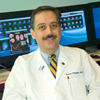 Vasken Dilsizian, MD, Professor, Department of Diagnostic Radiology & Nuclear Medicine, has been elected to serve on the Board of Directors of the American Society of Nuclear Cardiology, as an at-large member, beginning January 1, 2014, and ending December 31, 2017.
Vasken Dilsizian, MD, Professor, Department of Diagnostic Radiology & Nuclear Medicine, has been elected to serve on the Board of Directors of the American Society of Nuclear Cardiology, as an at-large member, beginning January 1, 2014, and ending December 31, 2017.
 Matthew Trudeau, PhD, Associate Professor, Department of Physiology, has been appointed as a Special Emphasis Panel Member to the NIH’s Biological Chemistry & Macromolecular Biophysics IRG.
Matthew Trudeau, PhD, Associate Professor, Department of Physiology, has been appointed as a Special Emphasis Panel Member to the NIH’s Biological Chemistry & Macromolecular Biophysics IRG.
Events, Lectures & Awards
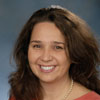 Shannan Dixon, MS, CGC, Assistant Professor, Department of Pediatrics, and Director, Master’s in Genetic Counseling Training Program, presented a platform presentation on “Designing, Implementing and Testing a Mobile Application to Assist with Pediatric-to-Adult Health Care Transition,” and co-authored a poster presentation on “The Design and Usability Testing of a Mobile Application to Aid in Child to Adult Care Transition,” both at the 15th International Conference on Human-Computer Interaction, in Las Vegas, NV, in July.
Shannan Dixon, MS, CGC, Assistant Professor, Department of Pediatrics, and Director, Master’s in Genetic Counseling Training Program, presented a platform presentation on “Designing, Implementing and Testing a Mobile Application to Assist with Pediatric-to-Adult Health Care Transition,” and co-authored a poster presentation on “The Design and Usability Testing of a Mobile Application to Aid in Child to Adult Care Transition,” both at the 15th International Conference on Human-Computer Interaction, in Las Vegas, NV, in July.
 Anne Estes, PhD, Post-Doctoral Fellow, Institute for Genome Sciences, presented “What Mom Packed for Lunch: The Vertically Transmitted Microbiome of Onthophagustaurus” at Salisbury University’s Department of Biological Sciences on March 14.
Anne Estes, PhD, Post-Doctoral Fellow, Institute for Genome Sciences, presented “What Mom Packed for Lunch: The Vertically Transmitted Microbiome of Onthophagustaurus” at Salisbury University’s Department of Biological Sciences on March 14.
 W. Florian Fricke, PhD, Assistant Professor, Department of Microbiology & Immunology, and Michelle Giglio, PhD (pictured), Assistant Professor, Department of Medicine, both also from the Institute for Genome Sciences, were conveners of a full-day workshop entitled “Do-It-Yourself Microbial Genome Sequence Analysis” at the American Society of Microbiology (ASM) General Meeting 2013 in Denver, CO, on May 18. The workshop focused on “CloVR” and the “IGS Annotation Engine,” two bioinformatics resources at the Institute for Genome Sciences. Dr. Fricke also gave an invited presentation on “CloVR: Do-It-Yourself Microbial Sequence Analysis On the Cloud” at the Mid-Atlantic Directors and Staff of Scientific Cores (MAD SSCi) Meeting in Frederick, MD, on June 14.
W. Florian Fricke, PhD, Assistant Professor, Department of Microbiology & Immunology, and Michelle Giglio, PhD (pictured), Assistant Professor, Department of Medicine, both also from the Institute for Genome Sciences, were conveners of a full-day workshop entitled “Do-It-Yourself Microbial Genome Sequence Analysis” at the American Society of Microbiology (ASM) General Meeting 2013 in Denver, CO, on May 18. The workshop focused on “CloVR” and the “IGS Annotation Engine,” two bioinformatics resources at the Institute for Genome Sciences. Dr. Fricke also gave an invited presentation on “CloVR: Do-It-Yourself Microbial Sequence Analysis On the Cloud” at the Mid-Atlantic Directors and Staff of Scientific Cores (MAD SSCi) Meeting in Frederick, MD, on June 14.
 Michael Grasso, MD, PhD, FACP, Assistant Professor, Department of Emergency Medicine, will present “On Use of Machine Learning Techniques and Genotypes for Prediction of Chronic Diseases” and “Text and Ontology Driven Clinical Decision Support System” at the AMIA Fall Symposium, which will be held from November 16–20 in Washington, DC.
Michael Grasso, MD, PhD, FACP, Assistant Professor, Department of Emergency Medicine, will present “On Use of Machine Learning Techniques and Genotypes for Prediction of Chronic Diseases” and “Text and Ontology Driven Clinical Decision Support System” at the AMIA Fall Symposium, which will be held from November 16–20 in Washington, DC.
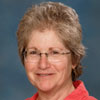 Carol Greene, MD, Professor, Department of Pediatrics, gave an invited presentation on “Clinical Issues in Screening, Laboratory Diagnosis and Management of Inherited Metabolic Disorders,” to the American Association of Clinical Chemistry (AACC) at the AACC Annual Meeting in Houston, TX, on July 29.
Carol Greene, MD, Professor, Department of Pediatrics, gave an invited presentation on “Clinical Issues in Screening, Laboratory Diagnosis and Management of Inherited Metabolic Disorders,” to the American Association of Clinical Chemistry (AACC) at the AACC Annual Meeting in Houston, TX, on July 29.
 Andrew Neuwald, PhD, Professor, Department of Biochemistry & Molecular Biology and Institute for Genome Sciences, gave a seminar entitled “Analysis of AAA+ ATPase and Ras-like GTPase Functional Divergence and Molecular Mechanisms” at the University of Maryland Baltimore County on March 13.
Andrew Neuwald, PhD, Professor, Department of Biochemistry & Molecular Biology and Institute for Genome Sciences, gave a seminar entitled “Analysis of AAA+ ATPase and Ras-like GTPase Functional Divergence and Molecular Mechanisms” at the University of Maryland Baltimore County on March 13.
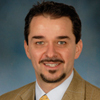 Jacques Ravel, PhD, Professor, Department of Microbiology & Immunology and Associate Director of Genomics at the Institute for Genome Sciences, gave an invited lecture on “The Vaginal Microbiome in Health and Disease” at The National Institute of Allergy and Infectious Diseases (NIAID) at the National Institutes of Health (NIH) in Bethesda, MD on March 1. He presented on the same topic at The University of Texas at San Antonio in San Antonio, TX, on April 12 and at The NIH’s National Institute on Aging in Baltimore on April 16. Dr. Ravel also participated on the World Health Organization’s “Global Action Plan and Roadmap for STI Vaccine Development and Introduction” in Geneva, Switzerland, from April 24–26, along with Rebecca Brotman, PhD, Associate Professor, Department of Epidemiology & Public Health and the Institute for Genome Sciences.
Jacques Ravel, PhD, Professor, Department of Microbiology & Immunology and Associate Director of Genomics at the Institute for Genome Sciences, gave an invited lecture on “The Vaginal Microbiome in Health and Disease” at The National Institute of Allergy and Infectious Diseases (NIAID) at the National Institutes of Health (NIH) in Bethesda, MD on March 1. He presented on the same topic at The University of Texas at San Antonio in San Antonio, TX, on April 12 and at The NIH’s National Institute on Aging in Baltimore on April 16. Dr. Ravel also participated on the World Health Organization’s “Global Action Plan and Roadmap for STI Vaccine Development and Introduction” in Geneva, Switzerland, from April 24–26, along with Rebecca Brotman, PhD, Associate Professor, Department of Epidemiology & Public Health and the Institute for Genome Sciences.
 Mark Rogers, PT, PhD, FAPTA, Professor & Interim Chair, Department of Physical Therapy & Rehabilitation Sciences, presented, “Postural Instability and Falls in Parkinson Disease” at the Parkinson’s Disease Foundation International Symposium in Sydney, Australia, on June 14.
Mark Rogers, PT, PhD, FAPTA, Professor & Interim Chair, Department of Physical Therapy & Rehabilitation Sciences, presented, “Postural Instability and Falls in Parkinson Disease” at the Parkinson’s Disease Foundation International Symposium in Sydney, Australia, on June 14.
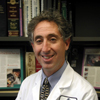 Alan Shuldiner, MD, the John L. Whitehurst Professor of Medicine, Director of the Program in Pharmacogenomics and Genomic Medicine, and Associate Dean for Personalized and Genomic Medicine presented “Pharmacogenomics: Real-Work Challenges in Translation to Clinical Practice” at the Up Close and Personalized meeting in Paris, France on July 27; “Genetic Diseases in the Amish Adult Population” at the Genomic Medicine and the Plain Populations of North America conference in Lancaster, PA on July 17; “Genomic Management of Anti-Platelet Therapeutics” at the Keystone Symposia in Stockholm, Sweden on June 20; and “Amish Participation in Medical Research: A Partnership of Trust and Mutual Benefit” at the World International Conference at Elizabethtown College on June 8.
Alan Shuldiner, MD, the John L. Whitehurst Professor of Medicine, Director of the Program in Pharmacogenomics and Genomic Medicine, and Associate Dean for Personalized and Genomic Medicine presented “Pharmacogenomics: Real-Work Challenges in Translation to Clinical Practice” at the Up Close and Personalized meeting in Paris, France on July 27; “Genetic Diseases in the Amish Adult Population” at the Genomic Medicine and the Plain Populations of North America conference in Lancaster, PA on July 17; “Genomic Management of Anti-Platelet Therapeutics” at the Keystone Symposia in Stockholm, Sweden on June 20; and “Amish Participation in Medical Research: A Partnership of Trust and Mutual Benefit” at the World International Conference at Elizabethtown College on June 8.
 Hervé Tettelin, PhD, Associate Professor, Department of Microbiology & Immunology and the Institute for Genome Sciences, presented “WS-16 Do-It-Yourself Microbial Genome Sequence Analysis,” at the American Society of Microbiology (ASM) General Meeting 2013 in Denver, CO, on May 18.
Hervé Tettelin, PhD, Associate Professor, Department of Microbiology & Immunology and the Institute for Genome Sciences, presented “WS-16 Do-It-Yourself Microbial Genome Sequence Analysis,” at the American Society of Microbiology (ASM) General Meeting 2013 in Denver, CO, on May 18.
 Richard Zhao, PhD, Professor, Departments of Pathology and Microbiology & Immunology, delivered a keynote lecture on “Marching Toward Individualized Molecular Testing for Personalized Patient Care” at the 2nd International Conference and Exhibition on Pathology (Pathology–2013), in Las Vegas, NV, from August 5–7.
Richard Zhao, PhD, Professor, Departments of Pathology and Microbiology & Immunology, delivered a keynote lecture on “Marching Toward Individualized Molecular Testing for Personalized Patient Care” at the 2nd International Conference and Exhibition on Pathology (Pathology–2013), in Las Vegas, NV, from August 5–7.
 Zhiyong Zhao, PhD, Assistant Professor, Department of Obstetrics, Gynecology & Reproductive Sciences, gave a President’s Oral Session presentation on “Targeting Nitrosative Stress to Reduce Embryonic Malformations in Diabetic Embryopathy” at the 73rd Annual Scientific Sessions of the American Diabetes Association, held from June 21–25 in Chicago, IL.
Zhiyong Zhao, PhD, Assistant Professor, Department of Obstetrics, Gynecology & Reproductive Sciences, gave a President’s Oral Session presentation on “Targeting Nitrosative Stress to Reduce Embryonic Malformations in Diabetic Embryopathy” at the 73rd Annual Scientific Sessions of the American Diabetes Association, held from June 21–25 in Chicago, IL.
Grants & Contracts
 Michelle Giglio, PhD, Assistant Professor, Department of Medicine and Institute for Genome Sciences, received a three-year, $921,000 grant from the National Institute of General Medical Sciences at the NIH for her work entitled “Expansion and Integration of the IGS Annotation Engine.”
Michelle Giglio, PhD, Assistant Professor, Department of Medicine and Institute for Genome Sciences, received a three-year, $921,000 grant from the National Institute of General Medical Sciences at the NIH for her work entitled “Expansion and Integration of the IGS Annotation Engine.”
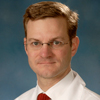 Thomas Monahan, MD, Assistant Professor, Department of Surgery, was the recipient of a 2013 Wylie Scholar Award in Academic Surgery to Vascular Cures. The annual Vascular Cures Wylie Scholar Award consists of a three-year, $150,000 grant given to the most promising vascular surgeon-scientists in North America who are dedicated to an academic career combining their clinical practice with original, innovative basic laboratory or clinical research. Dr. Monahan discovered a protein associated with pathologic scarring, or intimal hyperplasia, that can occur after cardiovascular bypass surgery or stent placement. The research to be funded by the Wylie scholarship will involve looking for ways to block that protein. Dr. Monahan was honored at the Wylie Scholar Award dinner in San Francisco on Sept. 28.
Thomas Monahan, MD, Assistant Professor, Department of Surgery, was the recipient of a 2013 Wylie Scholar Award in Academic Surgery to Vascular Cures. The annual Vascular Cures Wylie Scholar Award consists of a three-year, $150,000 grant given to the most promising vascular surgeon-scientists in North America who are dedicated to an academic career combining their clinical practice with original, innovative basic laboratory or clinical research. Dr. Monahan discovered a protein associated with pathologic scarring, or intimal hyperplasia, that can occur after cardiovascular bypass surgery or stent placement. The research to be funded by the Wylie scholarship will involve looking for ways to block that protein. Dr. Monahan was honored at the Wylie Scholar Award dinner in San Francisco on Sept. 28.
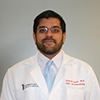 Osamah Saeedi, MD, Assistant Professor, Department of Ophthalmology & Visual Sciences, was recently awarded a grant for $129,000 from the Maryland Industrial Partnerships program to complete an early feasibility study on Xycam, a hand-held retinal imager. The grant was awarded in partnership with Vasoptic Medical, Inc., a Columbia-based startup company. The device measures retinal blood flow and will be tested for its potential in the early detection of diabetic retinopathy, glaucoma, or other ocular diseases at the primary care level.
Osamah Saeedi, MD, Assistant Professor, Department of Ophthalmology & Visual Sciences, was recently awarded a grant for $129,000 from the Maryland Industrial Partnerships program to complete an early feasibility study on Xycam, a hand-held retinal imager. The grant was awarded in partnership with Vasoptic Medical, Inc., a Columbia-based startup company. The device measures retinal blood flow and will be tested for its potential in the early detection of diabetic retinopathy, glaucoma, or other ocular diseases at the primary care level.
 Matthew Trudeau, PhD, Associate Professor, Department of Physiology, received a two-year, $154,000 Grant-in-Aid from the American Heart Association’s Mid-Atlantic division for his current research work “Gating in hERG K Channels.”
Matthew Trudeau, PhD, Associate Professor, Department of Physiology, received a two-year, $154,000 Grant-in-Aid from the American Heart Association’s Mid-Atlantic division for his current research work “Gating in hERG K Channels.”
Honors & Awards
 Veena Katikineni, MS-II, was named one of the winners of the Dairy Challenge by Scientists Without Borders, in partnership with the Sackler Institute for Nutrition Science and the Bill & Melinda Gates Foundation. The open innovation challenge asked for best ideas in collecting, aggregating, and sharing dairy data from smallholder farmers. Veena and friend Alejandra Leyton proposed the winning solution: using community-based “reward circles” in which smallholder farmers form groups to collect and report dairy data via a common questionnaire and shared SMS mobile device. In turn, the data can be analyzed by researchers and policy makers. “It’s really gratifying to be reminded that we can all really play a role on a daily basis in maximizing ‘good’ deliverables across the world,” Veena said in an interview with Scientists Without Borders. “The Internet opens doors for us to not only be more knowledgeable about local and global issues, but to also offer our skills through these kinds of open innovation challenges.”
Veena Katikineni, MS-II, was named one of the winners of the Dairy Challenge by Scientists Without Borders, in partnership with the Sackler Institute for Nutrition Science and the Bill & Melinda Gates Foundation. The open innovation challenge asked for best ideas in collecting, aggregating, and sharing dairy data from smallholder farmers. Veena and friend Alejandra Leyton proposed the winning solution: using community-based “reward circles” in which smallholder farmers form groups to collect and report dairy data via a common questionnaire and shared SMS mobile device. In turn, the data can be analyzed by researchers and policy makers. “It’s really gratifying to be reminded that we can all really play a role on a daily basis in maximizing ‘good’ deliverables across the world,” Veena said in an interview with Scientists Without Borders. “The Internet opens doors for us to not only be more knowledgeable about local and global issues, but to also offer our skills through these kinds of open innovation challenges.”
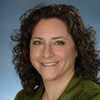 Rebecca Brotman, PhD, Assistant Professor, Department of Epidemiology & Public Health and the Institute for Genome Sciences, has received the 2013 New Investigator Award from the North American Menopause Society (NAMS). This award recognizes an outstanding abstract submission from investigators who have achieved their degree within the past seven years.
Rebecca Brotman, PhD, Assistant Professor, Department of Epidemiology & Public Health and the Institute for Genome Sciences, has received the 2013 New Investigator Award from the North American Menopause Society (NAMS). This award recognizes an outstanding abstract submission from investigators who have achieved their degree within the past seven years.
 Tyler Brown, BS, a student working in the lab of Christopher Plowe, MD, MPH (pictured), Professor, Department of Medicine, has received a Medical Research Fellowship from the Howard Hughes Medical Institute to study “Population Genetics and Drug Resistance in Plasmodium falciparum: Does Enhanced Genome Plasticity Explain the Rise of Resistant Parasites?” The fellowship will provide support for one year of full-time research training in fundamental biomedical research. Tyler will do this training with Dr. Plowe.
Tyler Brown, BS, a student working in the lab of Christopher Plowe, MD, MPH (pictured), Professor, Department of Medicine, has received a Medical Research Fellowship from the Howard Hughes Medical Institute to study “Population Genetics and Drug Resistance in Plasmodium falciparum: Does Enhanced Genome Plasticity Explain the Rise of Resistant Parasites?” The fellowship will provide support for one year of full-time research training in fundamental biomedical research. Tyler will do this training with Dr. Plowe.
 Nicholas Caffes, MS-II, has been awarded a 2013 Carol L. Kuckein Student Research Fellowship from Alpha Omega Alpha. The fellowship rewards a student-designed and -initiated project with an academic mentor, and includes a $5,000 award, with $1,000 available for travel to a national meeting to present research results. Nick’s project, “Heme-Induced Chemokine Expression and Neutrophil Recruitment in Intracerebral Hemorrhage,” was mentored by J. Mark Simard, MD, PhD, Professor, Department of Neurosurgery.
Nicholas Caffes, MS-II, has been awarded a 2013 Carol L. Kuckein Student Research Fellowship from Alpha Omega Alpha. The fellowship rewards a student-designed and -initiated project with an academic mentor, and includes a $5,000 award, with $1,000 available for travel to a national meeting to present research results. Nick’s project, “Heme-Induced Chemokine Expression and Neutrophil Recruitment in Intracerebral Hemorrhage,” was mentored by J. Mark Simard, MD, PhD, Professor, Department of Neurosurgery.
 Eliot Siegel, MD, Professor, Department of Diagnostic Radiology & Nuclear Medicine, and colleagues at the University of Maryland School of Medicine will receive Health Imaging Magazine’s “Imaging 3.0 Patient Centric Imaging Award” this fall for their work on a pilot project to allow patients Cloud-based access to their imaging studies, such as CT scans and MRIs. The University of Maryland School of Medicine is one of five institutions developing and testing the new system with the Radiological Society of North America, with funding from the National Institutes of Health.
Eliot Siegel, MD, Professor, Department of Diagnostic Radiology & Nuclear Medicine, and colleagues at the University of Maryland School of Medicine will receive Health Imaging Magazine’s “Imaging 3.0 Patient Centric Imaging Award” this fall for their work on a pilot project to allow patients Cloud-based access to their imaging studies, such as CT scans and MRIs. The University of Maryland School of Medicine is one of five institutions developing and testing the new system with the Radiological Society of North America, with funding from the National Institutes of Health.
 H. Ronald Zielke, PhD, Professor, Department of Pediatrics and Director, NICHD Brain and Tissue Bank for Developmental Disorders, received the President’s Tenacity Award from the Sturge-Weber Foundation for his 12-year effort to collect post-mortem tissue from Sturge-Weber patients, which led to the identification of the GNAQ9s21 mutation for Sturge-Weber and port-wine stains in 2013.
H. Ronald Zielke, PhD, Professor, Department of Pediatrics and Director, NICHD Brain and Tissue Bank for Developmental Disorders, received the President’s Tenacity Award from the Sturge-Weber Foundation for his 12-year effort to collect post-mortem tissue from Sturge-Weber patients, which led to the identification of the GNAQ9s21 mutation for Sturge-Weber and port-wine stains in 2013.
In the News
 Rolf Barth, MD, Associate Professor, Department of Surgery, was a guest on The Medical Hour with Jim Novick on July 21, discussing the topic of liver transplantation.
Rolf Barth, MD, Associate Professor, Department of Surgery, was a guest on The Medical Hour with Jim Novick on July 21, discussing the topic of liver transplantation.
 Craig Bennett, MD, Assistant Professor, Department of Orthopaedics, who is also Chief of the Sports Medicine Program and Team Orthopaedic Surgeon for the University of Maryland Terrapins, was featured on ABC News’ Sports Talk on September 2. He discussed knee injuries such as that incurred by Redskins quarterback Robert Griffin III. Dr. Bennett was also recently interviewed on Maryland Public Television’s Your Health program, discussing the prevention and treatment of common exercise and sports injuries.
Craig Bennett, MD, Assistant Professor, Department of Orthopaedics, who is also Chief of the Sports Medicine Program and Team Orthopaedic Surgeon for the University of Maryland Terrapins, was featured on ABC News’ Sports Talk on September 2. He discussed knee injuries such as that incurred by Redskins quarterback Robert Griffin III. Dr. Bennett was also recently interviewed on Maryland Public Television’s Your Health program, discussing the prevention and treatment of common exercise and sports injuries.
 John Cole, MD, Associate Professor, Department of Neurology, was featured on Maryland Public Television’s Direct Connection on July 29, talking about stroke risks. The video is available at http://video.mpt.tv/video/2365056680.
John Cole, MD, Associate Professor, Department of Neurology, was featured on Maryland Public Television’s Direct Connection on July 29, talking about stroke risks. The video is available at http://video.mpt.tv/video/2365056680.
 W. Florian Fricke, PhD, Assistant Professor, Department of Microbiology & Immunology from the Institute for Genome Sciences was featured in an article entitled “UMB Team to Use $410K NIAID Grant to Build Microbial Detection Pipeline for NGS-based Dx,” which appeared in Genome Web Bioinform on June 14. The article discussed Dr. Fricke’s project to develop automated bioinformatic resources for sequencing-based clinical microbial diagnostics.
W. Florian Fricke, PhD, Assistant Professor, Department of Microbiology & Immunology from the Institute for Genome Sciences was featured in an article entitled “UMB Team to Use $410K NIAID Grant to Build Microbial Detection Pipeline for NGS-based Dx,” which appeared in Genome Web Bioinform on June 14. The article discussed Dr. Fricke’s project to develop automated bioinformatic resources for sequencing-based clinical microbial diagnostics.
 Wendy Lane, MD, MPH (pictured), Clinical Assistant Professor, Department of Epidemiology & Public Health, and Renee Fox, MD, Associate Professor, Department of Pediatrics, are working closely with the B’more for Healthy Babies Upton/Druid Heights program, which was spotlighted in a story in the Baltimore Sun on August 30. B’more for Healthy Babies targets pregnant women in the community for direct services. Through education, community outreach, and a public awareness campaign, the initiative seeks to reduce infant mortality and improve birth outcomes.
Wendy Lane, MD, MPH (pictured), Clinical Assistant Professor, Department of Epidemiology & Public Health, and Renee Fox, MD, Associate Professor, Department of Pediatrics, are working closely with the B’more for Healthy Babies Upton/Druid Heights program, which was spotlighted in a story in the Baltimore Sun on August 30. B’more for Healthy Babies targets pregnant women in the community for direct services. Through education, community outreach, and a public awareness campaign, the initiative seeks to reduce infant mortality and improve birth outcomes.
 Robert Reed, MD, Assistant Professor, Department of Medicine, was recently a guest on The Medical Hour with Jim Novick, where he discussed pulmonary disease.
Robert Reed, MD, Assistant Professor, Department of Medicine, was recently a guest on The Medical Hour with Jim Novick, where he discussed pulmonary disease.
New Faculty
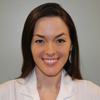 Janet Leath Alexander, MD, joined the Department of Ophthalmology & Visual Sciences as an Assistant Professor on August 1. Dr. Alexander received her B.S. degree in Chemical Engineering from the University of Washington in 2003. In 2008 she graduated from the University of Pittsburgh, receiving her medical degree with a concentration in Neuroscience. Dr. Alexander completed an internship at Northwestern University/McGaw Medical Center in Chicago, IL, and followed that with a residency in Ophthalmology at George Washington University Hospital. In June, Dr. Alexander completed a fellowship in Pediatric Ophthalmology and Strabismus at the Children’s National Medical Center in Washington, DC.
Janet Leath Alexander, MD, joined the Department of Ophthalmology & Visual Sciences as an Assistant Professor on August 1. Dr. Alexander received her B.S. degree in Chemical Engineering from the University of Washington in 2003. In 2008 she graduated from the University of Pittsburgh, receiving her medical degree with a concentration in Neuroscience. Dr. Alexander completed an internship at Northwestern University/McGaw Medical Center in Chicago, IL, and followed that with a residency in Ophthalmology at George Washington University Hospital. In June, Dr. Alexander completed a fellowship in Pediatric Ophthalmology and Strabismus at the Children’s National Medical Center in Washington, DC.
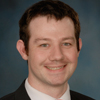 Timothy O’Connor, PhD, joined the Department of Medicine and the Institute for Genome Sciences in July as an Assistant Professor. Dr. O’Connor received his doctorate in Evolutionary Genomics from the University of Cambridge in the UK, where he was a Gates Cambridge Scholar. He was most recently at the University of Washington School of Medicine in Seattle, WA, where his research focus was population and evolutionary human genetics, specifically using next-generation sequence technology to understand the interplay of evolution and genotype-phenotype architecture.
Timothy O’Connor, PhD, joined the Department of Medicine and the Institute for Genome Sciences in July as an Assistant Professor. Dr. O’Connor received his doctorate in Evolutionary Genomics from the University of Cambridge in the UK, where he was a Gates Cambridge Scholar. He was most recently at the University of Washington School of Medicine in Seattle, WA, where his research focus was population and evolutionary human genetics, specifically using next-generation sequence technology to understand the interplay of evolution and genotype-phenotype architecture.
 Leah Blythe Ruppe, MS, CNM, joined the Department of Obstetrics, Gynecology & Reproductive Sciences in September as an Instructor in the division of Midwifery. She will be part of the department’s excellent team of Midwives who provide 24/7 coverage of the University of Maryland Medical Center’s Labor & Delivery floor; clinical services in one of three clinical sites; and teaching efforts, including participation in medical student lectures, clinical training of medical and midwifery students, and resident education. Ms. Ruppe received her Master of Science in Nurse-Midwifery and WHNP in 2010 from Georgetown University and is Board certified by the American Midwifery Certification Board.
Leah Blythe Ruppe, MS, CNM, joined the Department of Obstetrics, Gynecology & Reproductive Sciences in September as an Instructor in the division of Midwifery. She will be part of the department’s excellent team of Midwives who provide 24/7 coverage of the University of Maryland Medical Center’s Labor & Delivery floor; clinical services in one of three clinical sites; and teaching efforts, including participation in medical student lectures, clinical training of medical and midwifery students, and resident education. Ms. Ruppe received her Master of Science in Nurse-Midwifery and WHNP in 2010 from Georgetown University and is Board certified by the American Midwifery Certification Board.
Promotions
 W. Florian Fricke, PhD, Assistant Professor, Department of Microbiology & Immunology and the Institute for Genome Sciences was promoted to the tenure track in the Department of Microbiology & Immunology, effective July 1, 2013.
W. Florian Fricke, PhD, Assistant Professor, Department of Microbiology & Immunology and the Institute for Genome Sciences was promoted to the tenure track in the Department of Microbiology & Immunology, effective July 1, 2013.
 David Rasko, PhD, Assistant Professor, Department of Microbiology & Immunology and the Institute for Genome Sciences, was promoted to the rank of Associate Professor, full-time, tenure track, in the Department of Microbiology & Immunology, effective July 1, 2013.
David Rasko, PhD, Assistant Professor, Department of Microbiology & Immunology and the Institute for Genome Sciences, was promoted to the rank of Associate Professor, full-time, tenure track, in the Department of Microbiology & Immunology, effective July 1, 2013.
 Lynn Schriml, PhD, Assistant Professor, Department of Epidemiology & Public Health and Institute for Genome Sciences, was promoted to the tenure track in the Department of Epidemiology & Public Health, effective July 1, 2013.
Lynn Schriml, PhD, Assistant Professor, Department of Epidemiology & Public Health and Institute for Genome Sciences, was promoted to the tenure track in the Department of Epidemiology & Public Health, effective July 1, 2013.
Publications
 Maureen Black, PhD, the John A. Scholl, MD, and Mary Louise Scholl, MD, Professor of Pediatrics (pictured); and Yan Wang, BM, DrPH, Assistant Professor, both from the Department of Pediatrics, were among the co-authors on “Do Depression, Self-Esteem, Body-Esteem, and Eating Attitudes Vary by BMI Among African American Adolescents?” in the Journal of Pediatric Psychology, 2013 Aug 2 [Epub ahead of print].
Maureen Black, PhD, the John A. Scholl, MD, and Mary Louise Scholl, MD, Professor of Pediatrics (pictured); and Yan Wang, BM, DrPH, Assistant Professor, both from the Department of Pediatrics, were among the co-authors on “Do Depression, Self-Esteem, Body-Esteem, and Eating Attitudes Vary by BMI Among African American Adolescents?” in the Journal of Pediatric Psychology, 2013 Aug 2 [Epub ahead of print].
 Sean Daugherty, Senior Bioinformatics Analyst; Sonia Agrawal, Senior Bioinformatics Software Engineer; Naomi Sengamalay, Program Manager; Lisa Sadzewicz Deshong, PhD, Administrative Director; and Luke Tallon, PhD, Scientific Director, all from the Institute for Genome Sciences (IGS); along with Claire Fraser, PhD, Professor, Departments of Medicine and Microbiology & Immunology and Director of IGS; and Jacques Ravel, PhD (pictured), Professor, Department of Microbiology & Immunology and Associate Director of Genomics at IGS, co-authored “Whole-Genome Draft Sequences of 26 Enterohemorrhagic Escherichia coli O157:H7 Strains” in Genome Announcements, 2013 Feb 28;(2):e0013412. Dr. Ravel was also among the co-authors of “Male Circumcision Significantly Reduces Prevalence and Load of Genital Anaerobic Bacteria” in MBio, 2013 Apr 16;4(2), and “Are Changes to the Common Rule Necessary to Address Evolving Areas of Research? A Case Study Focusing on the Human Microbiome Project” in the Journal of Law, Medicine & Ethics, 2013 Jun;41(2):454-69.
Sean Daugherty, Senior Bioinformatics Analyst; Sonia Agrawal, Senior Bioinformatics Software Engineer; Naomi Sengamalay, Program Manager; Lisa Sadzewicz Deshong, PhD, Administrative Director; and Luke Tallon, PhD, Scientific Director, all from the Institute for Genome Sciences (IGS); along with Claire Fraser, PhD, Professor, Departments of Medicine and Microbiology & Immunology and Director of IGS; and Jacques Ravel, PhD (pictured), Professor, Department of Microbiology & Immunology and Associate Director of Genomics at IGS, co-authored “Whole-Genome Draft Sequences of 26 Enterohemorrhagic Escherichia coli O157:H7 Strains” in Genome Announcements, 2013 Feb 28;(2):e0013412. Dr. Ravel was also among the co-authors of “Male Circumcision Significantly Reduces Prevalence and Load of Genital Anaerobic Bacteria” in MBio, 2013 Apr 16;4(2), and “Are Changes to the Common Rule Necessary to Address Evolving Areas of Research? A Case Study Focusing on the Human Microbiome Project” in the Journal of Law, Medicine & Ethics, 2013 Jun;41(2):454-69.
 Michelle Giglio, PhD, Assistant Professor, Department of Medicine, and Marcus Chibucos, PhD, Research Associate, Department of Microbiology & Immunology, both also from the Institute for Genome Sciences, were among the co-authors on “Gene Ontology Annotations and Resources” in Nucleic Acids Research, 2013 Jan;41(Database issue):D530-5.
Michelle Giglio, PhD, Assistant Professor, Department of Medicine, and Marcus Chibucos, PhD, Research Associate, Department of Microbiology & Immunology, both also from the Institute for Genome Sciences, were among the co-authors on “Gene Ontology Annotations and Resources” in Nucleic Acids Research, 2013 Jan;41(Database issue):D530-5.
 Tracy Hazen, PhD, Postdoctoral Fellow, and David Rasko, PhD (pictured), Associate Professor, Department of Microbiology & Immunology, both also from the Institute for Genome Sciences, were among the co-authors on “In Vitro Evolution of an Archetypal Enteropathogenic Escherichia coli Strain” in the Journal of Bacteriology, 2013 Aug 2 [Epub ahead of print]. Dr. Rasko was also among the co-authors on “Quantitative Polymerase Chain Reaction for Detection of Shigella Improves Ascertainment of Shigella Burden in Children with Moderate to Severe Diarrhea in Low Income Countries” in the Journal of Clinical Microbiology, 2013 Jun;51(6):1740-6.
Tracy Hazen, PhD, Postdoctoral Fellow, and David Rasko, PhD (pictured), Associate Professor, Department of Microbiology & Immunology, both also from the Institute for Genome Sciences, were among the co-authors on “In Vitro Evolution of an Archetypal Enteropathogenic Escherichia coli Strain” in the Journal of Bacteriology, 2013 Aug 2 [Epub ahead of print]. Dr. Rasko was also among the co-authors on “Quantitative Polymerase Chain Reaction for Detection of Shigella Improves Ascertainment of Shigella Burden in Children with Moderate to Severe Diarrhea in Low Income Countries” in the Journal of Clinical Microbiology, 2013 Jun;51(6):1740-6.
 Julie Dunning Hotopp, PhD, Assistant Professor, Department of Microbiology & Immunology and the Institute for Genome Sciences, was among the co-authors on “Genomics of Loa loa, a Wolbachia-Free Filarial Parasite of Humans” in Nature Genetics, 2013, May;45(5):495-500. She and Hervé Tettelin, PhD, Associate Professor, Department of Microbiology & Immunology and the Institute for Genome Sciences, were among the co-authors on “The Two-Component Response Regulator LiaR Regulates Cell Wall Stress Responses, Pili Expression, and Virulence in Group B Streptococcus” in Microbiology, 2013 Jul;159(Pt 7):1521-34. Drs. Hotopp and Tettelin, along with Nikhil Kumar, Research Specialist; Heather Huot Creasy, Bioinformatics Analyst; Luke Tallon, PhD, Scientific Director; and Xinyue Liu, Bioinformatics Software Engineer, all from the Institute for Genome Sciences, were also among the co-authors on “Phenotypic, Genomic, and Transcriptional Characterization of Streptococcus pneumoniae Interacting With Human Pharyngeal Cells” in BMC Genomics, 2013 Jun 9;14:383, and “Transcriptional Adaptation of Pneumococci and Human Pharyngeal Cells in the Presence of a Virus Infection” in BMC Genomics, 2013 Jun 7;14:378. Dr. Tettelin was also among the co-authors on “New Rapid Scheme for Distinguishing Subspecies of the Mycobacterium Abscessus Group and Identification of Mycobacterium Massiliense With Inducible Clarithromycin Resistance” in the Journal of Clinical Microbiology, 2013 Jun 26 [Epub ahead of print].
Julie Dunning Hotopp, PhD, Assistant Professor, Department of Microbiology & Immunology and the Institute for Genome Sciences, was among the co-authors on “Genomics of Loa loa, a Wolbachia-Free Filarial Parasite of Humans” in Nature Genetics, 2013, May;45(5):495-500. She and Hervé Tettelin, PhD, Associate Professor, Department of Microbiology & Immunology and the Institute for Genome Sciences, were among the co-authors on “The Two-Component Response Regulator LiaR Regulates Cell Wall Stress Responses, Pili Expression, and Virulence in Group B Streptococcus” in Microbiology, 2013 Jul;159(Pt 7):1521-34. Drs. Hotopp and Tettelin, along with Nikhil Kumar, Research Specialist; Heather Huot Creasy, Bioinformatics Analyst; Luke Tallon, PhD, Scientific Director; and Xinyue Liu, Bioinformatics Software Engineer, all from the Institute for Genome Sciences, were also among the co-authors on “Phenotypic, Genomic, and Transcriptional Characterization of Streptococcus pneumoniae Interacting With Human Pharyngeal Cells” in BMC Genomics, 2013 Jun 9;14:383, and “Transcriptional Adaptation of Pneumococci and Human Pharyngeal Cells in the Presence of a Virus Infection” in BMC Genomics, 2013 Jun 7;14:378. Dr. Tettelin was also among the co-authors on “New Rapid Scheme for Distinguishing Subspecies of the Mycobacterium Abscessus Group and Identification of Mycobacterium Massiliense With Inducible Clarithromycin Resistance” in the Journal of Clinical Microbiology, 2013 Jun 26 [Epub ahead of print].
 Howard Kader, MD, Assistant Professor, Department of Pediatrics, was among the co-authors on “NASPGHAN Clinical Report and Consensus Statement: Diagnosis and Treatment of Perianal Crohns Disease,” in the Journal of Pediatric Gastroenterology & Nutrition, 2013 Sep;57(3):401-412.
Howard Kader, MD, Assistant Professor, Department of Pediatrics, was among the co-authors on “NASPGHAN Clinical Report and Consensus Statement: Diagnosis and Treatment of Perianal Crohns Disease,” in the Journal of Pediatric Gastroenterology & Nutrition, 2013 Sep;57(3):401-412.
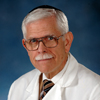 Matthew Laurens, MD, MPH, Assistant Professor, Department of Pediatrics; Matthew Adams, Research Specialist; Christopher Jacob, PhD student; Robert Edelman, MD (pictured), Professor; Christopher Plowe, MD, MPH, Professor; and Kirsten Lyke, MD, Associate Professor, all from the Department of Medicine, were among the co-authors on “Successful Human Infection With P. falciparum Using Three Aseptic Anopheles stephensi Mosquitoes: A New Model for Controlled Human Malaria Infection” in PLoS One, 2013 Jul 16;8(7):e68969.
Matthew Laurens, MD, MPH, Assistant Professor, Department of Pediatrics; Matthew Adams, Research Specialist; Christopher Jacob, PhD student; Robert Edelman, MD (pictured), Professor; Christopher Plowe, MD, MPH, Professor; and Kirsten Lyke, MD, Associate Professor, all from the Department of Medicine, were among the co-authors on “Successful Human Infection With P. falciparum Using Three Aseptic Anopheles stephensi Mosquitoes: A New Model for Controlled Human Malaria Infection” in PLoS One, 2013 Jul 16;8(7):e68969.
 Erik Lillehoj, PhD, Associate Professor, Department of Pediatrics, was a co-author on “Dietary Supplementation of Young Broiler Chickens With Capsicum and Turmeric Oleoresins Increases Resistance to Necrotic Enteritis” in the British Journal of Nutrition, 2013 Apr;9:1-8.
Erik Lillehoj, PhD, Associate Professor, Department of Pediatrics, was a co-author on “Dietary Supplementation of Young Broiler Chickens With Capsicum and Turmeric Oleoresins Increases Resistance to Necrotic Enteritis” in the British Journal of Nutrition, 2013 Apr;9:1-8.
 Bing Ma, PhD, Postdoctoral Fellow, Institute for Genome Sciences, was among the co-authors on “Inferring Ancient Metabolism Using Ancestral Core Metabolic Models of Enterobacteria” in BMC Systems Biology, 2013 Jun 11;7:46.
Bing Ma, PhD, Postdoctoral Fellow, Institute for Genome Sciences, was among the co-authors on “Inferring Ancient Metabolism Using Ancestral Core Metabolic Models of Enterobacteria” in BMC Systems Biology, 2013 Jun 11;7:46.
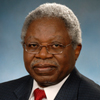 Purushotamachar Puranik, PhD, Research Associate; Abhijit Godbole, PhD; Lalji Gediya, PhD, Research Associate; Marlena Martin; Tadas Vasaitis, PhD, Academic Fellow; Andrew Kwegyir-Afful, BS; Senthilmurugan Ramalingam, PhD, Postdoctoral Fellow; Zeynep Ates-Alagoz, PhD; and Vincent C. O. Njar, PhD (pictured), Professor, all from the Department of Pharmacology, were among the co-authors on “Systematic Structure Modifications of Multi-target Prostate Cancer Drug Candidate Galeterone To Produce Novel Androgen Receptor Down-Regulating Agents as an Approach to Treatment of Advanced Prostate Cancer” in The Journal of Medicinal Chemistry, 2013 May 28; 56(12), 4880-98.
Purushotamachar Puranik, PhD, Research Associate; Abhijit Godbole, PhD; Lalji Gediya, PhD, Research Associate; Marlena Martin; Tadas Vasaitis, PhD, Academic Fellow; Andrew Kwegyir-Afful, BS; Senthilmurugan Ramalingam, PhD, Postdoctoral Fellow; Zeynep Ates-Alagoz, PhD; and Vincent C. O. Njar, PhD (pictured), Professor, all from the Department of Pharmacology, were among the co-authors on “Systematic Structure Modifications of Multi-target Prostate Cancer Drug Candidate Galeterone To Produce Novel Androgen Receptor Down-Regulating Agents as an Approach to Treatment of Advanced Prostate Cancer” in The Journal of Medicinal Chemistry, 2013 May 28; 56(12), 4880-98.
 Mark Rogers, PT, PhD, FAPTA, Professor and Interim Chair, Department of Physical Therapy & Rehabilitation Sciences was among the co-authors on “One Step, Two Steps, Three Steps More…Directional Vulnerability to Falls in Community Dwelling Older People“ in Journals of Gerontology, Biological Sciences, 2013, May 17 [Epub ahead of print]; “Early and Unintentional Release of Planned Motor Actions During Motor Cortical Preparation” in PLoS One, 2013 May;7;8(5):e63417; and “Stepping in Persons Post-Stroke: Comparison of Voluntary and Perturbation-Induced Responses” in Archives of Physical Medicine and Rehabilitation, 2013 Jul 16 [Epub ahead of print].
Mark Rogers, PT, PhD, FAPTA, Professor and Interim Chair, Department of Physical Therapy & Rehabilitation Sciences was among the co-authors on “One Step, Two Steps, Three Steps More…Directional Vulnerability to Falls in Community Dwelling Older People“ in Journals of Gerontology, Biological Sciences, 2013, May 17 [Epub ahead of print]; “Early and Unintentional Release of Planned Motor Actions During Motor Cortical Preparation” in PLoS One, 2013 May;7;8(5):e63417; and “Stepping in Persons Post-Stroke: Comparison of Voluntary and Perturbation-Induced Responses” in Archives of Physical Medicine and Rehabilitation, 2013 Jul 16 [Epub ahead of print].
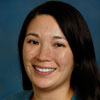 Mark Travassos, MD, MSc, Instructor; Andrea Berry, MD (pictured), Assistant Professor; and Matthew Laurens, MD, MPH, Assistant Professor, all from the Department of Pediatrics; Jason Bailey, PhD student; Amed Ouattara, PharmD, MS, PhD, Research Fellow; Shannon Takala Harrison, PhD, Assistant Professor; Kirsten Lyke, MD, Associate Professor; and Christopher Plowe, MD, MPH, Professor, all from the Department of Medicine, were among the co-authors on “Seroreactivity to the PfEMP1 Intracellular Domain in Malaria-Exposed Children and Adults” in The Journal of Infectious Diseases, 2013 Jul 30 [Epub ahead of print].
Mark Travassos, MD, MSc, Instructor; Andrea Berry, MD (pictured), Assistant Professor; and Matthew Laurens, MD, MPH, Assistant Professor, all from the Department of Pediatrics; Jason Bailey, PhD student; Amed Ouattara, PharmD, MS, PhD, Research Fellow; Shannon Takala Harrison, PhD, Assistant Professor; Kirsten Lyke, MD, Associate Professor; and Christopher Plowe, MD, MPH, Professor, all from the Department of Medicine, were among the co-authors on “Seroreactivity to the PfEMP1 Intracellular Domain in Malaria-Exposed Children and Adults” in The Journal of Infectious Diseases, 2013 Jul 30 [Epub ahead of print].
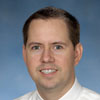 Erik von Rosenvinge, MD (pictured), Assistant Professor, Department of Medicine; Thomas Blanchard, PhD, Associate Professor, Department of Pediatrics; Yang Song, PhD, Post-doctoral Fellow, Institute for Genome Sciences; James White, PhD, Bioinformatics Software Engineer, Institute for Genome Sciences; Cynthia Maddox, Research Specialist, Institute for Genome Sciences; and W. Florian Fricke, PhD, Assistant Professor, Department of Microbiology & Immunology and Institute for Genome Sciences, co-authored “Immune Status, Antibiotic Medication and pH Are Associated With Changes In the Stomach Fluid Microbiota” in the ISME Journal, 2013 Jul;7(7):1354-66.
Erik von Rosenvinge, MD (pictured), Assistant Professor, Department of Medicine; Thomas Blanchard, PhD, Associate Professor, Department of Pediatrics; Yang Song, PhD, Post-doctoral Fellow, Institute for Genome Sciences; James White, PhD, Bioinformatics Software Engineer, Institute for Genome Sciences; Cynthia Maddox, Research Specialist, Institute for Genome Sciences; and W. Florian Fricke, PhD, Assistant Professor, Department of Microbiology & Immunology and Institute for Genome Sciences, co-authored “Immune Status, Antibiotic Medication and pH Are Associated With Changes In the Stomach Fluid Microbiota” in the ISME Journal, 2013 Jul;7(7):1354-66.
 Matthew Trudeau, PhD, Associate Professor, Department of Physiology, was a co-author on “The eag Domain Regulates hERG Channel Inactivation Via a Direct Interaction” in The Journal of General Physiology, 2013, Feb;141(2):229-241, and “Structure of the C-terminal Region of an ERG Channel and Functional Implications” in Proceedings of the National Academy of Sciences, USA, 2013 Jul;110(28):11648-11653.
Matthew Trudeau, PhD, Associate Professor, Department of Physiology, was a co-author on “The eag Domain Regulates hERG Channel Inactivation Via a Direct Interaction” in The Journal of General Physiology, 2013, Feb;141(2):229-241, and “Structure of the C-terminal Region of an ERG Channel and Functional Implications” in Proceedings of the National Academy of Sciences, USA, 2013 Jul;110(28):11648-11653.
 Laura Yerges-Armstrong, PhD (pictured), Assistant Professor; Joshua Lewis, PhD, Assistant Professor; Richard Horenstein, MD, Assistant Professor; Amber Beitelshees, PharmD, Assistant Professor; and Alan Shuldiner, MD, the John L. Whitehurst Professor of Medicine, Director of the Program in Pharmacogenomics and Genomic Medicine, and Associate Dean for Personalized and Genomic Medicine, all from the Department of Medicine, were among the co-authors on “Integration of Pharmacometabolomic and Pharmacogenomic Approaches Reveals Novel Insights Into Antiplatelet Therapy” in Clinical Pharmacology and Therapeutics, 2013 Jul 26 [Epub ahead of print]. Dr. Shuldiner also co-authored “The Pharmacogenomics Research Network Translational Pharmacogenetics Program: Overcoming Challenges of Real-World Implementation” in Clinical Pharmacology and Therapeutics, 2013; 94(2): 207–210.
Laura Yerges-Armstrong, PhD (pictured), Assistant Professor; Joshua Lewis, PhD, Assistant Professor; Richard Horenstein, MD, Assistant Professor; Amber Beitelshees, PharmD, Assistant Professor; and Alan Shuldiner, MD, the John L. Whitehurst Professor of Medicine, Director of the Program in Pharmacogenomics and Genomic Medicine, and Associate Dean for Personalized and Genomic Medicine, all from the Department of Medicine, were among the co-authors on “Integration of Pharmacometabolomic and Pharmacogenomic Approaches Reveals Novel Insights Into Antiplatelet Therapy” in Clinical Pharmacology and Therapeutics, 2013 Jul 26 [Epub ahead of print]. Dr. Shuldiner also co-authored “The Pharmacogenomics Research Network Translational Pharmacogenetics Program: Overcoming Challenges of Real-World Implementation” in Clinical Pharmacology and Therapeutics, 2013; 94(2): 207–210.
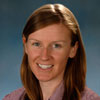 Patricia Young, PhD (pictured), Postdoctoral Fellow; Jill Whitall, PhD, Professor, Wei-Nan Bair, PhD, Postdoctoral Fellow, and Mark Rogers, PT, PhD, FAPTA, Professor and Interim Chair, all from the Department of Physical Therapy & Rehabilitation Sciences, were co-authors on “Leg Preference Associated With Protective Stepping Responses in Older Adults” in Clinical Biomechanics, 2013 Aug 2 [Epub ahead of print].
Patricia Young, PhD (pictured), Postdoctoral Fellow; Jill Whitall, PhD, Professor, Wei-Nan Bair, PhD, Postdoctoral Fellow, and Mark Rogers, PT, PhD, FAPTA, Professor and Interim Chair, all from the Department of Physical Therapy & Rehabilitation Sciences, were co-authors on “Leg Preference Associated With Protective Stepping Responses in Older Adults” in Clinical Biomechanics, 2013 Aug 2 [Epub ahead of print].

